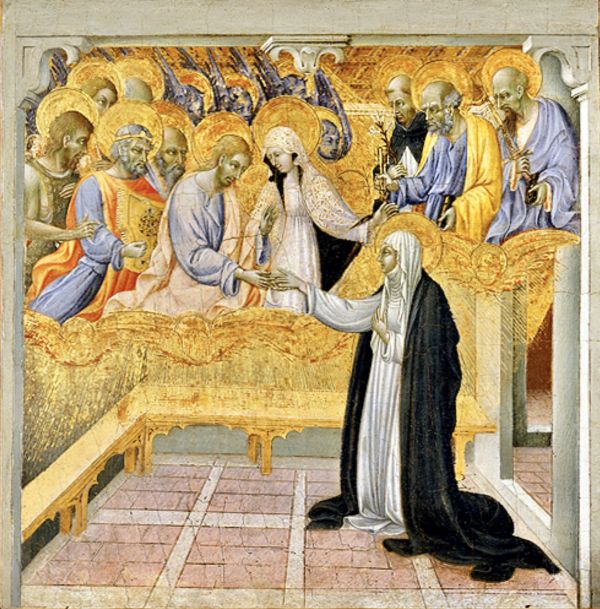«I give praise to you, Father, Lord of heaven and earth, for you have hidden these things from the wise and the learned and revealed them to babes» (Mt 11:25).
Jesus is the only one who can truly call the Lord of heaven and earth Father, but into this familiarity he introduces everyone.
Clare, seedling of the blessed Father Francis, with her special character of simplicity and littleness had attained, by Grace, such a great familiarity with the Lord that she moved in total harmony with Him.
Consulting the Sources, in the Legend we read of the degree of the Saint's intimate union with the divine Bridegroom.
"How much strength and support she received in the furnace of ardent prayer, how sweet the divine goodness was to her in that fruition, is attested by proven evidence.
For when he returned in the joy of holy prayer, he brought back from the fire of the altar of the Lord burning words, such as inflamed the hearts of his sisters.
For they noted with admiration that a certain gentleness radiated from his face and that his face seemed brighter than usual' (FF 3199).
In a letter to Ermentrude of Bruges* he recommends:
"Always be attentive and vigilant in prayer. Bring to its consummation the good you have begun, and fulfil the mystery you have embraced in holy poverty and sincere humility" (FF 2916).
Such was Clare, a simple and small creature, capable of rejoicing at every gift received, at every tiny reality that spoke to her of the Eternal.
"She received with great joy the scraps of alms, the pieces of bread that the beggars brought back and, almost sad for the whole loaves, she was happy instead for those little pieces" (FF 3188).
A woman conformed to Christ in everything, she considered herself a nothing before God.
In her Testament she exhorted meekness and humility of heart, as a loving Mother:
"Again I beg her who will be in charge of the sisters, that she may endeavour to preside over the others more by virtue and holiness of life than by dignity, so that, animated by her example, the sisters may lend obedience to her, not so much because of the office she occupies, but out of love.
Let her also be provident and discreet towards her sisters, like a good mother towards her daughters [...].
May she still be so affable and accessible to all that the sisters may confidently manifest their needs to her and have recourse to her at every hour with confidence [...]" (FF 2848).
Meekness and humility: stature of the little ones, to whom the Mysteries of the Kingdom are revealed, finding consolation in loving with the sentiments of Christ.
*Ermentrude of Bruges: to her we owe the spread of the Order of the Poor Clares in Flanders.
St Catherine of Siena, 29 April (Mt 11:25-30)












